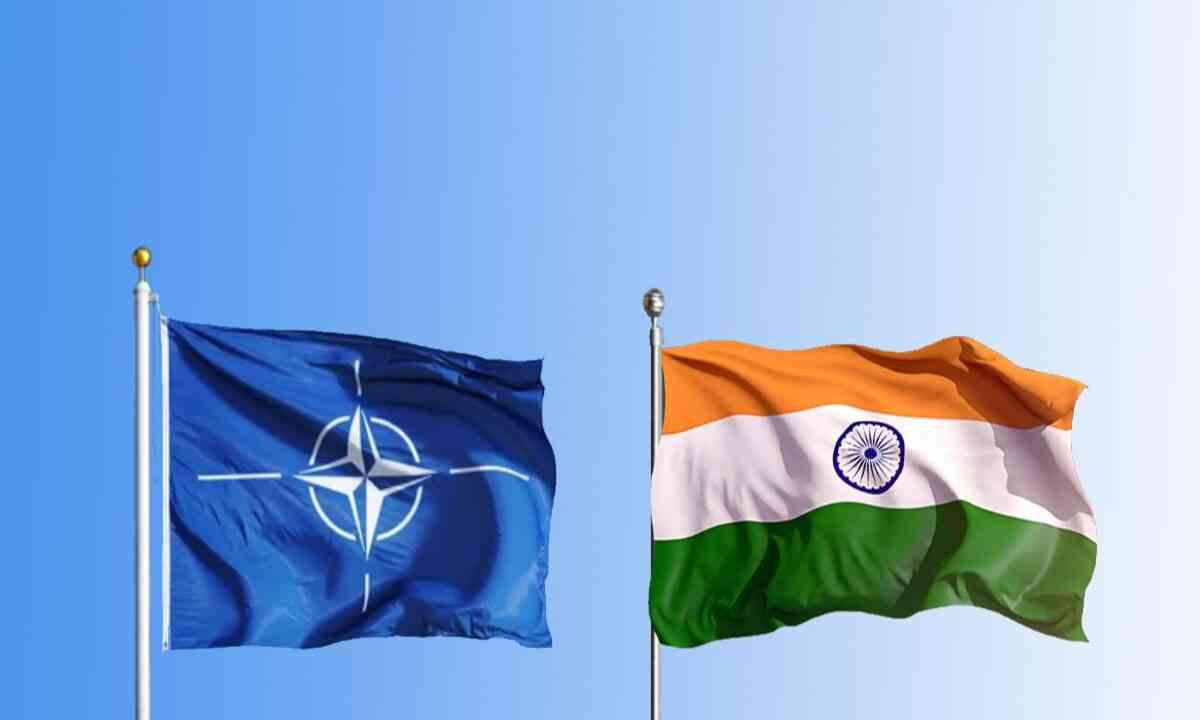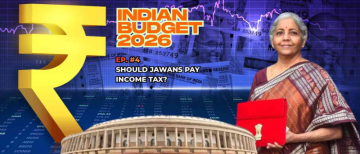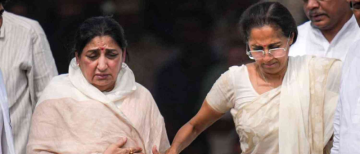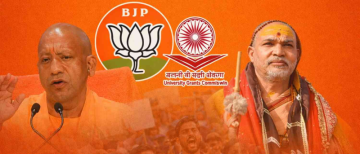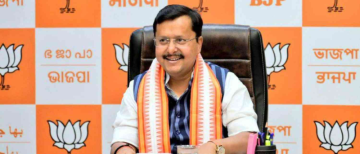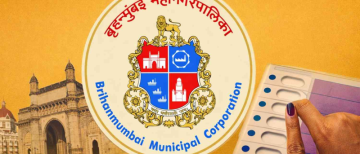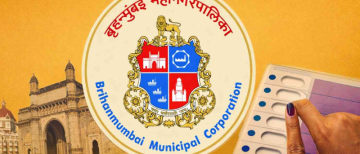On March 2, New Delhi and the North Atlantic Treaty Organization (NATO) held a rare strategic meeting to discuss regional security issues in a move that could have global repercussions. The conversation reportedly took place at the beginning of March this year. Attending were high-ranking representatives from India's ministries of military and external affairs as well as those from NATO's policy planning section. This security alliance of 30 European and North American nations was present in South Asia in Afghanistan. There, NATO soldiers fought for 20 years until the US-led withdrawal in late 2021. The gathering among India and the NATO will undoubtedly cover different subjects, including the possibility of a nearer relationship and organization zeroing in on Indo-Pacific international issues.
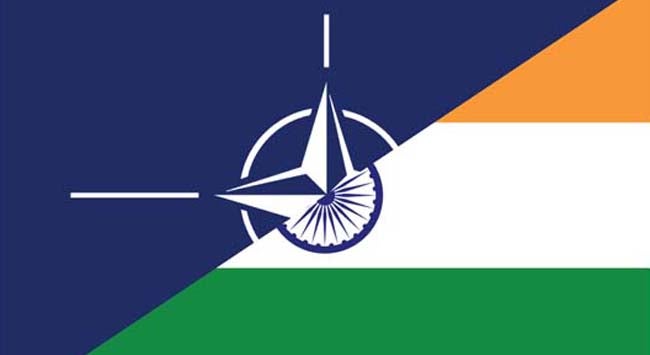
Media reports claim that India and NATO had a political conversation in 2019 with the intention of improving relations. The same allegations, which were never refuted, stated that terrorism, the changing situation in Afghanistan, and China had been the main topics of conversation. However, at the time, the two sides were unable to find common ground due to NATO's emphasis on Russia as a significant threat and its relative ambivalence regarding China's security concerns. The geopolitical situation will drastically change during this new round of discussions.
Engagements or dialogues with military alliances like NATO appear acceptable given India's growing multi-alignment. India's strategic autonomy is protected by multi-alignment, which allows New Delhi to participate in NATO while remaining a member of the Shanghai Cooperation Organization alongside Russia and China.
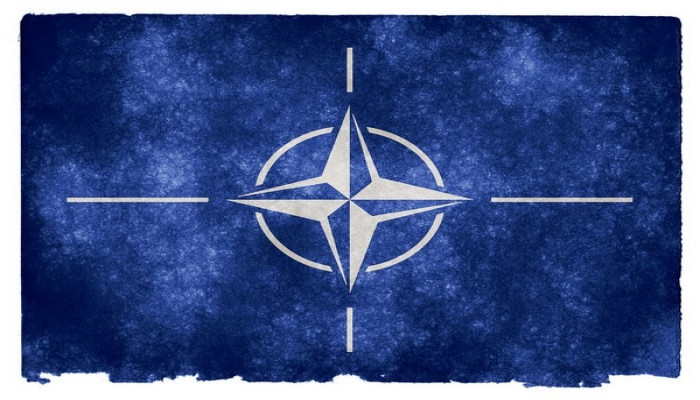
STRATEGIC RELATIONSHIP BETWEEN INDIA AND NATO
On December 12, 2019, India held its first political dialogue with NATO in Brussels. Nonetheless, in the present circumstances, a drawing in NATO in a political discussion will permit India to adjust NATO's evaluation of the circumstance in districts and subjects of importance to India. NATO's collaboration with India will be bolstered by interaction, and India's geostrategic location gives it a unique perspective and improves global security in India's region and beyond.
India's talks with NATO are important because the North Atlantic alliance talks to China and Pakistan separately. Before 2019, NATO had nine rounds of negotiations with Beijing, and the Deputy Secretary General of NATO and the Chinese Ambassador in Brussels met quarterly. Pakistan and NATO had also collaborated militarily and discussed politics.
Pakistani officers have begun receiving selective NATO training, and a NATO military mission visited Pakistan in November 2019 for staff meetings. It will also be a significant topic of discussion at the meeting because there is a lot in common with NATO. India will benefit militarily and strategically from working with the most powerful alliance in the world. Even though India is able to protect its borders, collective defense laws based on pure geopolitical alliance would prevent China and Pakistan from attacking India. An alliance or strategic cooperation with NATO would prevent this.
India and NATO share similar perspectives regarding terrorism, China, and Afghanistan, particularly Pakistan's involvement in the latter. India could achieve a balance in NATO's assessment of the situation in India's important regions and topics by participating in political discourse.
POSSIBILITY OF COOPERATION BETWEEN INDIA AND NATO
At the beginning of March, New Delhi and the transatlantic alliance will have a "rare strategic conversation" about issues pertaining to regional security. Senior NATO authorities, as well as delegates from India's guard and unfamiliar services, are supposed to go to the discussions. Given the two's positions in the US strategic framework, that makes sense. New Delhi's policies have shifted toward Washington over the years, gradually turning the US into a quasi-ally. Consequently, it makes sense for New Delhi to strengthen ties with NATO, which serves as one of Washington's strategic vehicles for putting the United States' global policy, including its Indo-Pacific Strategy, into action.
In addition, NATO and India have asserted that they sensed "threats" and even "pressure" from China's expansion. In its Strategic Concept for 2022, NATO identified China as a security issue for the first time. New Delhi and Beijing have disagreed in the past, particularly regarding border issues, trade disputes, and regional leadership. India and NATO's cooperation is expected to center on combining forces against China, as controlling China has become the most important point of agreement and mutual interest. Aside from the China issue, both sides are attempting to use the other for strategic gain through increased engagement. The collaboration may provide each party with what they require.
NATO is under a lot of pressure in the ongoing Russia-Ukraine conflict due to Moscow's recent major attack. Because it might not be as powerful as it thinks, the group is looking for moral support or assistance from outside sources. Additionally, NATO continues to pursue the terrible goal of expanding its involvement in the Asia-Pacific region, which would undoubtedly disrupt the balance of power in the region. In order to strengthen its containment of China and stifle Russia from the west and east, Washington plans to use India as a springboard to expand its involvement in the region. India, on the other hand, wants to make the difficult global strategic environment in which it finds itself more manageable. Since the beginning of the Russia-Ukraine crisis, the West has tried to get India to participate in sanctions against Russia. However, India has tried to remain neutral because it still relies heavily on Russia.
CHINA ANGLE
The China conflict will be of mutual interest in this discussion because India continues to face Chinese border aggression. A deeper comprehension of India's challenge and China's expansionist policy could be beneficial to NATO. NATO has taken a more assertive stance since Russia invaded Ukraine. Beijing's supporting for Moscow, as well as its declaration of a "no-restrictions" collaboration with Russia, has hardened NATO's position towards the Asian behemoth.
The China issue is squarely addressed in NATO's most recent Strategic Concept, which was released in June of last year. NATO's interests, security, and values are in jeopardy as a result of the People's Republic of China (PRC)'s declared goals and coercive practices. While keeping its strategy, goals, and military buildup a secret, the People's Republic of China expands its global footprint and projects influence through a variety of political, economic, and military strategies. Alliance security is targeted and undermined by the destructive hybrid and cyber activities, aggressive rhetoric, and disinformation of the PRC.
The People's Republic of China aspires to dominate crucial infrastructure, strategic resources, and industrial and technology sectors. It expands its influence by forging strategic alliances and utilizing its economic might. It aims to undermine the norm-based international order, particularly in the maritime, cyber, and space sectors. European nations like the UK, Germany, and France have increased their military presence in the region in recent years. It is unknown whether this development will have an effect on India's relationship with Russia given the tense relationship between Moscow and NATO.
FUTURE OBSTACLES
India's relationship with Russia will suffer as a result of strengthened NATO ties. NATO asserts that Russia's aggressive actions endanger European security, not China, posed the greatest threat. India's membership in the Quad is intended to pose a challenge to Beijing because of its members' divergent perspectives on China. New Delhi realized after its first round of negotiations with NATO that the alliance and it had no agreement on Russia or the Taliban. Contrary to India's position, NATO viewed the Taliban as a political organization. NATO has difficulty convening meetings of the NATO-Russia Council because Russia is unwilling to position issues like Ukraine and the Intermediate-Range Nuclear Forces Treaty.
New Delhi may investigate NATO offers for bilateral collaboration in India-relevant areas based on the success of the initial rounds. NATO said that India was important to world security and could be a good partner because of its strategic location and unique perspective on many issues. India must steer clear of conflicts that have nothing to do with its own interests. India's allies in Moscow are concerned because a close relationship with NATO would also jeopardize India's stated goal of working toward a multipolar world. India needs to find new partners on its terms.
CONCLUSION
India hopes to exert some influence in reducing tensions between Russia and the transatlantic treaty organization by increasing its interactions with NATO. He said that this is a way for New Delhi to show that it is a "great power" and get ready to host the G20 conference this year at the same time. Numerous sources in Indian media have advised the Indian government to "keep relations with NATO restricted" and avoid becoming overly involved in the Washington-led alliance structure. Many Indians dislike NATO. Consequently, New Delhi must take into account domestic public sentiment if it insists on strengthening its partnership with NATO.
In addition, it will put India's diplomatic and strategic independence, which is waning as it increasingly aligns itself with American strategy, to the test. It has suggested that India may not have the capacity or resources to uphold the declared strategic autonomy it has declared. To this extent, New Delhi's strategic autonomy has already been significantly damaged by following Washington. The capacity of India to direct an autonomous international strategy instead of simply following the US will be basic for New Delhi.
India and NATO may, according to some Indian analysts, share perspectives on counterterrorism and the geopolitical environment and explore joint cooperation stances through frequent discussion forums. Others contend that an Indo-Pacific maritime security alliance could be formed by India and NATO. The development of Indian foreign policy and India's assessment of its strategic autonomy determine the extent and scope of India's collaboration with NATO.
©️ Vygr Media Private Limited 2022. All Rights Reserved.

